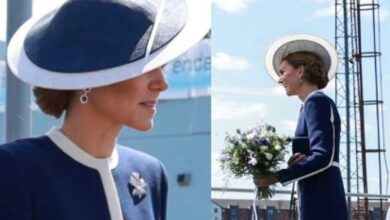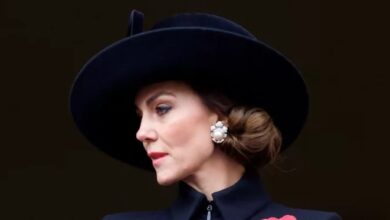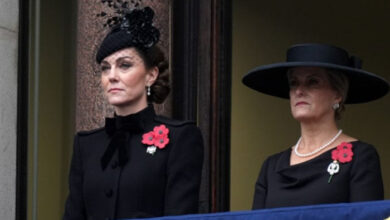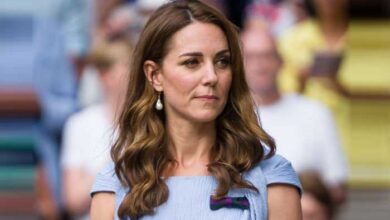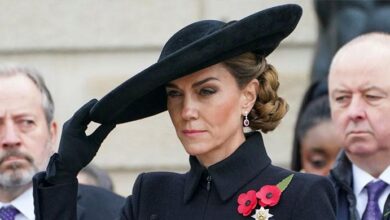Kate Middleton’s Raw Confession to Cancer Patients Sends Shockwaves Through Royal Watchers
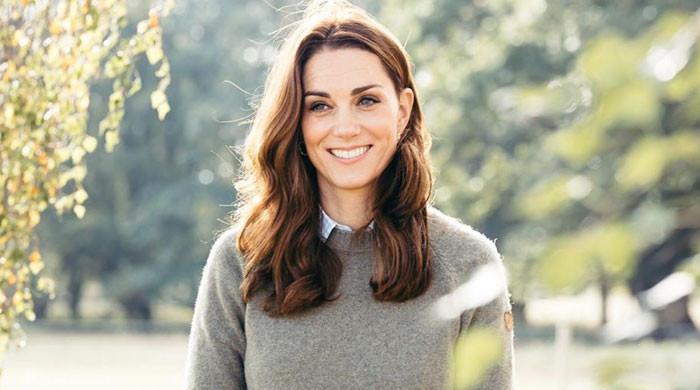
Kate Middleton didn’t just step out for an ordinary engagement when she travelled to Essex’s Cancer Support Centre as she thundered back onto the royal stage with a message that cut through the pomp and pageantry like a clarion bell.
Witnesses say the Princess of Wales deliberately spoke “very loudly and clearly,” determined to make sure every ear, from palace corridor to hospital ward, heard exactly where she stands.
For months, speculation around Catherine’s health has swirled across headlines and social feeds alike. Yes, she’s officially resumed royal duties, but according to royal correspondent Rhiannon Mills—who stood only feet away during the visit—Kate wanted the world to understand that re‑entry is “really difficult,” an admission rarely voiced by senior royals in such blunt terms.
Inside the airy community room, Kate didn’t mince words as she spoke to patients still fighting their battles. She acknowledged the thin veneer many adopt during active treatment: the brave face, the stoic smile, the stiff‑upper‑lip that Britain so famously venerates. Then she peeled the façade away, explaining that the “after” phase can feel even harder.
“You’re suddenly off the clinical radar,” she said, her voice soft but resolute, “yet not able to function normally at home.” The onlookers—nurses, volunteers, survivors—fell silent. Here was a future Queen consort admitting the same uncertainties that haunt ordinary families after the final chemo drip and the last radiotherapy beep.
Kate’s candor also shone a spotlight on the silent casualties: partners, children, and parents who orbit the patient’s pain but often lack their own roadmap. “It is life‑changing for the families as well,” she noted, adding that the ripple effect can remain “unrecognised” unless someone labels it out loud. In that moment, she labeled it for millions.
Royal biographers argue this open‑hearted style marks a dramatic shift from earlier Windsor generations, who preferred coded phrases—“a little trouble with one’s health”—over the harsh vocabulary of illness. Yet Catherine chose phrases like “really valuable” support and “life‑changing experience,” unapologetically spelling out how crucial mental scaffolding is after medical clearance.
Observers saw a tactical element, too. By framing her recovery as ongoing, Kate effectively manages expectations about her future workload. While tabloids may hunger for a glittering full calendar, the Princess is signalling that health safeguards will dictate her pace, even if that means fewer tiaras and more downtime in Norfolk with George, Charlotte, and Louis.
Her words also dovetail with Prince William’s efforts to modernise the monarchy. Where duty once trumped vulnerability, the Waleses are weaving transparency into the Crown’s fabric, arguing that authenticity builds deeper public trust than polished silence ever could.
Read More: Kate Middleton’s Secret Plan to Give Her Mother Royal Power When She Becomes Queen
But make no mistake: stepping back before the cameras carries risk. Critics who accuse the Sussexes of oversharing will surely watch to see whether Kate’s openness garners sympathy or sparks backlash for “too much information.” Early signs suggest the public is firmly in her corner, applauding the Princess for voicing what countless survivors feel but rarely say in front‑page print.
The visit’s timing was strategic, coming just weeks after Kate quietly resumed a limited schedule of engagements. By anchoring her comeback to a cancer support setting, she linked her personal story to a tangible cause—one likely to grow into a signature campaign mirroring her work on early childhood.
Behind the scenes, insiders whisper that the Princess poured over briefing papers to ensure she could offer practical assurance, not just platitudes. Staff recall her asking pointed questions: How long is the typical post‑treatment adjustment? Which services fall through funding gaps? What can royal patronage plug immediately?
As she departed, Kate paused for a final word with a group of young adult survivors, urging them to “keep talking, even on the days when it feels you’ve used up all your brave.” Cameras captured smiles laced with understanding—the kind only insiders to the same battlefield can exchange.
The overarching message Kate blasted into headline territory was simple yet seismic: recovery isn’t a ribbon‑cutting moment; it’s a relentless climb.
By airing the struggle first‑hand, she’s recasting the monarchy’s role from distant symbol to human ally—and reminding the world that even future queens bleed, break, and battle back, one vulnerable step at a time.
